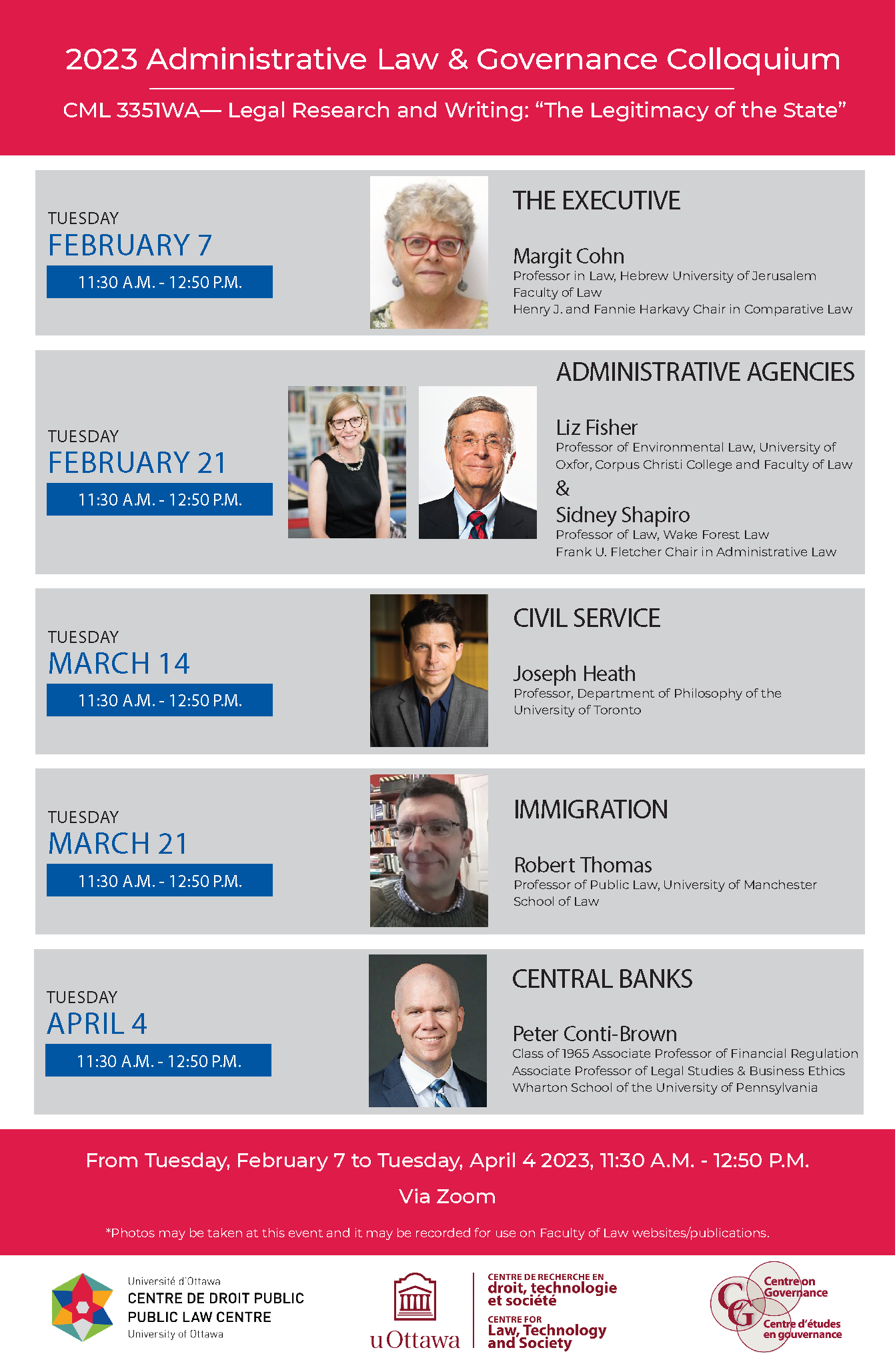Reminder: Peter Conti-Brown on Central Banks, Tuesday April 4 at 11.30 via Zoom (Administrative Law & Governance Colloquium 2023)

The last speaker in this year’s Administrative Law & Governance Colloquium, “The Legitimacy of the State” will be Professor Peter Conti-Brown (Wharton School, University of Pennsylvania). You can register here or simply join us at this link on Zoom on Tuesday.
Professor Conti-Brown will be speaking about central banking, based on his book The Power and Independence of the Federal Reserve (Princeton University Press, 2016):
The independence of the Federal Reserve is considered a cornerstone of its identity, crucial for keeping monetary policy decisions free of electoral politics. But do we really understand what is meant by “Federal Reserve independence”? Using scores of examples from the Fed’s rich history, The Power and Independence of the Federal Reserve shows that much common wisdom about the nation’s central bank is inaccurate. Legal scholar and financial historian Peter Conti-Brown provides an in-depth look at the Fed’s place in government, its internal governance structure, and its relationships to such individuals and groups as the president, Congress, economists, and bankers.
Exploring how the Fed regulates the global economy and handles its own internal politics, and how the law does—and does not—define the Fed’s power, Conti-Brown captures and clarifies the central bank’s defining complexities. He examines the foundations of the Federal Reserve Act of 1913, which established a system of central banks, and the ways that subsequent generations have redefined the organization. Challenging the notion that the Fed Chair controls the organization as an all-powerful technocrat, he explains how institutions and individuals—within and outside of government—shape Fed policy. Conti-Brown demonstrates that the evolving mission of the Fed—including systemic risk regulation, wider bank supervision, and as a guardian against inflation and deflation—requires a reevaluation of the very way the nation’s central bank is structured.
Investigating how the Fed influences and is influenced by ideologies, personalities, law, and history, The Power and Independence of the Federal Reserve offers a uniquely clear and timely picture of one of the most important institutions in the United States and the world.
He will also touch on his recent co-authored article “Towards an Administrative Law of Central Banking“:
A world in turmoil caused by COVID-19 has revealed again what has long been true: the Federal Reserve is arguably the most powerful administrative agency in government, but neither administrative-law scholars nor the Fed itself treat it that way. In this Article, we present the first effort to map the contours of what administrative law should mean for the Fed, with particular attention to the processes the Fed should follow in determining and announcing legal interpretations and major policy changes. First, we synthesize literature from administrative law and social science to show the advantages that an agency like the Fed can glean from greater openness and transparency in its interpretations of law and in its long-term policymaking processes. These advantages fall into two categories: (1) sending more credible signals of future action and thereby shaping the behavior of regulated parties and other constituents, and (2) increasing the diversity of incoming information on which to base decisions, thereby improving their factual and predictive accuracy. Second, we apply this framework to two key areas—monetary policy and emergency lending—to show how the Fed can improve its policy signaling and input diversity in the areas of its authority that are most expansive. The result is a positive account of what the Fed already does as an administrative agency and a normative account of what it should do in order to preserve necessary policy flexibility without sacrificing the public demands for policy clarity and rigor.
Do join us on Tuesday! This is an evergreen topic (with particular salience at the moment due to the collapse of Silicon Valley Bank) and an important one: Professor Conti-Brown slays many myths about central bank independence and functions that continue to animate popular and political discussion about monetary policy even though central banking has changed radically in recent times.
This content has been updated on March 31, 2023 at 14:12.